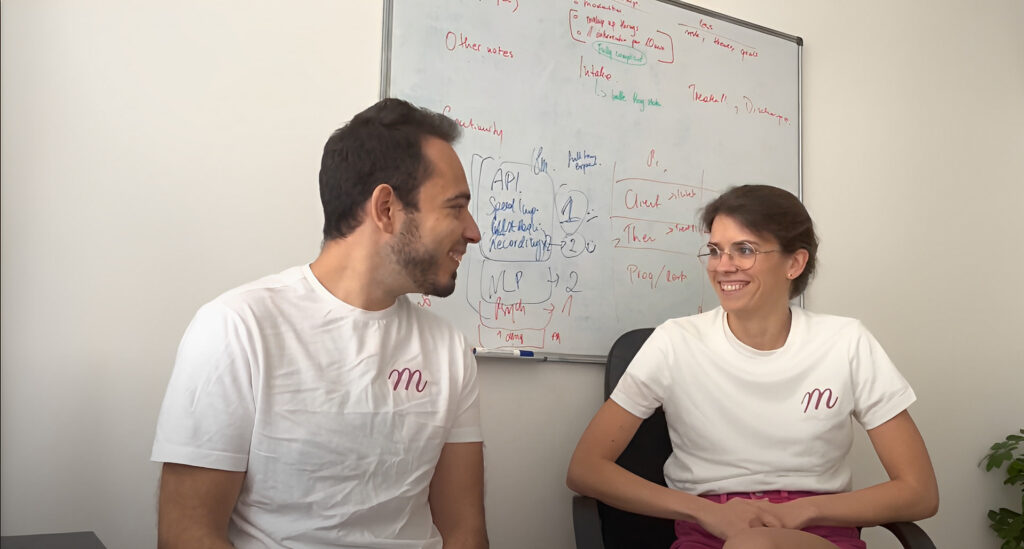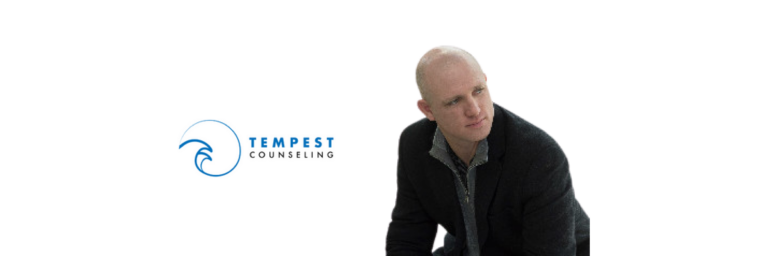Have your progress notes written for you automatically
How we met and discovered our shared passion
Georgi and I met during the Entrepreneur First Accelerator program, where we learned about our shared desire to help other people and our passion for building something that would be meaningful to us.

Having had problems with an eating disorder as a teen myself, it was natural for me to further explore the domain of mental health. I remembered the struggles I was facing during that time and particularly when I had to switch therapists several times, as no one was seemingly able to help me with my problems, repeating the same story over and over again.
At the point of meeting with Georgi, I not only had my own experiences as a patient but also my previous ventures in the areas of insurance and mental health. This experience taught me the importance of the therapist’s role in the healing process and the difficulties they are facing.
It also happened to be in the middle of the COVID pandemic, so there was no doubt that the mental health industry needed a revolution. Georgi, from his point of view as a software engineer and a data scientist, believed that the key lies in utilizing the data from the interactions between therapists and their patients.
Identifying a key area of frustration for therapists
Starting from there, Georgi and I spoke with hundreds of therapists to get a better understanding of what issues they might be dealing with from day to day. In doing so, we found that therapeutic notes were a key area of frustration. Therapists would complain that seeing clients back-to-back left no time to complete their notes. They try doing it during the session, but this leads to missing important non-verbal expressions and breaking the deep therapeutic alliance.
About half of them would take notes only after the sessions. The most disciplined ones reported taking notes after each session, but this would lead to no “pie break” and the feeling of getting burned out. Others waited till the end of the day or end of the week to complete their notes, which would lead to struggles recalling the important details of each session. This reminded me of the problems I faced as a teen, going from therapist to therapist, feeling misunderstood, and repeating myself over and over again.
We also learned that therapists don’t specifically learn how to write notes during their education which leads to insecurities and performance anxiety. What doesn’t help is that insurance companies keep raising standards of what is required in the documentation. A lot of therapists would run into trouble and have to repay the money they earned (so-called clawback), because of using the incorrect formulations in their notes.
Speaking with payers, we understood that there is a reason why insurance enforces those rules and it is a valid one. They want to make sure that therapy sessions provide value and lead to the patient getting better. This is something I missed personally in my own experience with therapy.
Next to the therapists’ complaints and insurance demands, it also seemed that the note-taking process played a large role in why therapists have difficulties understanding their patients (zoom out in a process called case formulation), which affects therapeutic decision-making leaving patients with poor treatment.
Addressing issues with note-taking to improve patient care
Meeting Georgi, who already had a decade of experience in complex data systems, machine learning, and full-stack development from companies that anonymized various types of sensitive data, including videos, enabled me to look for solutions that were unthinkable before.
With Georgi’s skillset and pragmatic thinking and my own previous experiences from the realm of strategy consulting with McKinsey and past startup ventures, including a mental health mobile application, we found ourselves as a well-complementing team to create our startup, Mentalyc. With all that, we set out to create a fully automated AI Scribe that creates notes for therapists, saving them time and allowing them to focus more on their patient’s needs.
In the long term, we aim to completely reinvent the way we measure the progress and efficacy of therapy. We believe that AI scribing can be a first step towards transparent processes, better decisions, and discoveries of new treatments.
Watch Maria tell her story and pitch Mentalyc to investors at the Berkeley SkyDeck Demo Day (2022)









